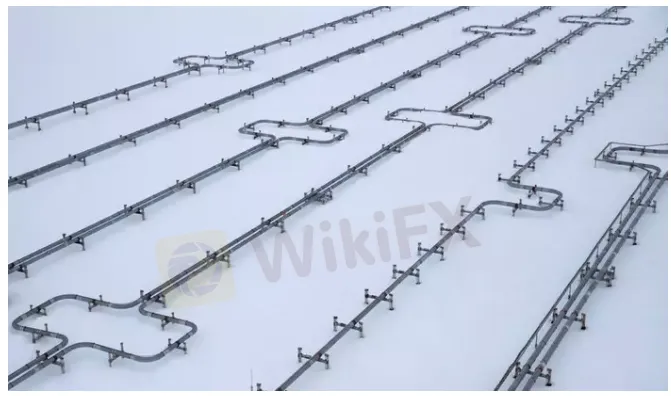简体中文
繁體中文
English
Pусский
日本語
ภาษาไทย
Tiếng Việt
Bahasa Indonesia
Español
हिन्दी
Filippiiniläinen
Français
Deutsch
Português
Türkçe
한국어
العربية
Russian demand for rouble gas payments would be breach of contract, EU leaders say
Abstract:Leaders from some European Union member states said on Thursday Russias demand that “unfriendly” countries use roubles to buy for its oil and gas could breach supply contracts.

President Vladimir Putins demand on Wednesday for rouble payments sent European gas prices surging and added to concerns over supply disruptions in the EU, which gets about 40% of its gas from Russia.
Germany and Italy said the move may breach energy supply contracts. German chancellor Olaf Scholz said the currency German companies must pay for Russian fossil fuels was fixed in their contracts.
“There are fixed contracts everywhere, with the currency in which the deliveries are to be paid being part of these contracts… in most cases it says euros or dollars,” Scholz said on his arrival to an EU summit in Brussels on Thursday.
That was echoed by Italian Prime Minister Mario Draghi. “This is basically a breach of contract, this is important to understand,” he said.
European Commission President Ursula von der Leyen agreed, and said the move was an attempt to circumvent EU sanctions against Russia.
“We will not allow our sanctions to be circumvented. The time when energy could be used to blackmail us is over,” she said.
Payments in roubles would shore up the Russian currency which has plummeted since the Feb. 24 invasion. Putins speech lifted the rouble 9% against the dollar on Wednesday.
Analysts said rouble payments would be possible without breaking EU sanctions, which do not directly hit oil and gas supplies but target banks that could be involved in rouble transactions.
Russias main gas exporter Gazprom has more than 40 long-term gas agreements with European counterparties, with Europe paying hundreds of millions of euros per day to Moscow for fossil fuels.
According to Gazprom, around 97% of its gas sales to Europe and other countries as of Jan. 27 were settled in euros or U.S. dollars.
A disruption to Russian oil and gas imports would hit some EU countries harder than others. Germany, Europe‘s biggest economy and energy consumer, receives 18% of Russia’s gas exports and 11% of its oil.
Lithuanian President Gitanas Nausėda said he was “not scared” by Putins demand, since Latvia does not import Russian crude oil and could replace Russian gas with liquefied natural gas from elsewhere.
“Nobody will pay in roubles,” Slovenias Prime Minister Janez Jansa said.

Disclaimer:
The views in this article only represent the author's personal views, and do not constitute investment advice on this platform. This platform does not guarantee the accuracy, completeness and timeliness of the information in the article, and will not be liable for any loss caused by the use of or reliance on the information in the article.
Read more

Will the Euro and US Dollar Reach Parity in 2025?
Euro-dollar parity sparks debate again as 2025 approaches, with multiple factors shaping the exchange rate outlook.

US Dollar Surge Dominates Forex Market
The global forex market continues to show volatility, with the U.S. dollar fluctuating last week but overall maintaining a strong upward trend. How long can this momentum last?

Oil Prices Soar for 5 Days: How Long Will It Last?
Last week, the global oil market saw a strong performance, with Brent crude and WTI crude prices rising by 2.4% and around 5% respectively. Oil prices have now posted five consecutive days of gains. But how long can this rally last?

Fed Signals Only Two Rate Cuts This Year as Inflation Remains Above 2% Target
The Federal Reserve prioritizes inflation control and economic stability, signaling limited rate cuts amid persistent price pressures.
WikiFX Broker
Latest News
SQUARED FINANCIAL: Your Friend or Foe?
Big News! UK 30-Year Bond Yields Soar to 25-Year High!
High-Potential Investments: Top 10 Stocks to Watch in 2025
Why Is Nvidia Making Headlines Everywhere Today?
Discover How Your Trading Personality Shapes Success
US Dollar Insights: Key FX Trends You Need to Know
FINRA Charges UBS $1.1 Million for a Decade of False Trade Confirmations
BI Apprehends Japanese Scam Leader in Manila
Bitcoin in 2025: The Opportunities and Challenges Ahead
Join the Event & Level Up Your Forex Journey
Currency Calculator







